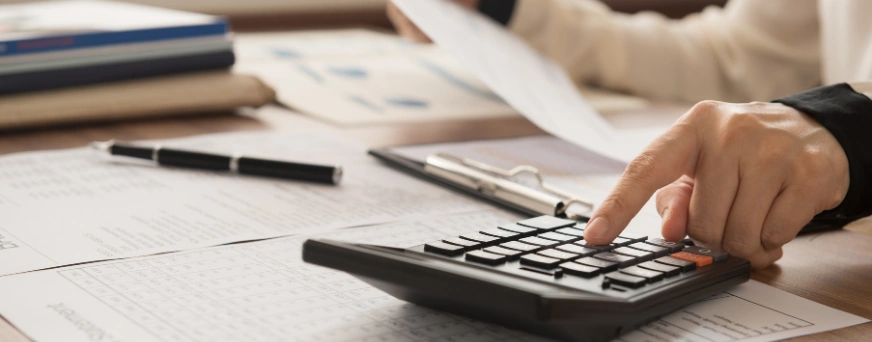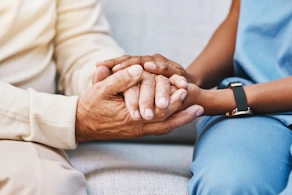The Hidden Link: How Pain Can Cause Spikes In Blood Pressure
Seniors in Canada know that managing blood pressure plays a major role in maintaining health. Pain can unexpectedly impact blood pressure levels, leading to spikes that may be concerning. Let’s look at how pain affects blood pressure and explore practical strategies for seniors to manage these changes. By understanding the body's response to pain, seniors can take steps to control their blood pressure and improve their well-being.
Life Assure Product Quiz
Take our 30 second quiz and discover which Life Assure medical alert device is the right fit for you or a loved ones.
Life Assure Product Quiz
Take our 30 second quiz and discover which Life Assure medical alert device is the right fit for you or a loved ones.
Understanding The Relationship Between Pain And Blood Pressure

Pain is more than just an unpleasant feeling. It sets off a chain reaction in the body that can raise your blood pressure. When pain strikes, the sympathetic nervous system kicks in, triggering the fight-or-flight response. This leads to the release of stress hormones like adrenaline and cortisol, which can make the heart race and blood vessels tighten, pushing blood pressure higher.
For seniors, who might already be dealing with cardiovascular changes due to aging, these reactions can have a bigger impact. Situations like a sudden injury from a fall or ongoing issues like arthritis or neuropathy can cause blood pressure to spike. Understanding these pain-related blood pressure changes is critical for seniors. By recognizing the signs early, they can take steps to manage their health and avoid complications.
Common Types Of Pain That Can Affect Blood Pressure
Seniors must understand how different types of pain can impact blood pressure. Chronic pain, like arthritis or persistent back pain, is common in older adults and can lead to ongoing stress responses that elevate blood pressure. Acute pain from sudden injuries like falls or fractures can cause immediate spikes, as the body reacts quickly to manage the injury, often increasing heart rate and tightening blood vessels.
Neuropathy, which is especially prevalent in seniors with diabetes, can cause unpredictable pain episodes that may affect blood pressure. Managing these types of pain is necessary to prevent prolonged blood pressure spikes, which can pose additional health risks. To effectively manage their blood pressure and maintain overall health, seniors must learn to recognize these common pain sources and manage them quickly.
Managing Blood Pressure Spikes Caused By Pain
Seniors who experience pain-related blood pressure spikes can benefit from a mix of lifestyle changes, medical treatments, and alternative therapies. This holistic approach can help keep blood pressure in check and minimize the risks tied to pain-induced hypertension.
Lifestyle Modifications
Staying active is the best way to manage pain and blood pressure. Activities like walking, swimming, or tai chi are gentle on the joints and can boost circulation, strengthen the heart, and ease stress. These exercises not only help with pain relief but also gradually lower blood pressure.
Diet also plays a major role in blood pressure management. Seniors should aim for meals rich in fruits, vegetables, whole grains, and lean proteins while cutting back on salt and processed foods. Staying hydrated and limiting caffeine and alcohol can also help prevent blood pressure spikes.
It’s also very important that seniors manage their stress well. Techniques like deep breathing, meditation, and yoga can help seniors unwind and keep stress-related blood pressure spikes at bay. Regularly practicing these relaxation methods can significantly improve overall health.
Medical Interventions
When pain causes blood pressure spikes, seniors may need help from a professional to manage both issues effectively. Medications are often the first line of treatment. Drugs like ACE inhibitors, beta-blockers, and calcium channel blockers can help keep blood pressure steady. Acetaminophen or NSAIDs are commonly used for pain relief since they don't typically interfere with blood pressure.
It's best for seniors to work with their healthcare professionals to create a treatment plan tailored to their needs. Regular checkups allow doctors to consider their medical history and possible drug interactions to make sure each medication is working safely and effectively. Doctors can adjust doses or switch medications if needed to achieve the best results.
In some situations, more advanced treatments like nerve blocks or physical therapy might be suggested to address specific pain areas without relying heavily on medication. By collaborating with their healthcare providers, seniors can find a balanced approach to managing pain and stabilizing blood pressure, which leads to a better quality of life.
Alternative Therapies
Although conventional treatments are effective, alternative therapies also offer valuable options for seniors who are managing pain and related blood pressure spikes. Acupuncture, for example, can ease chronic pain and reduce stress, which may help lower blood pressure. Massage therapy, on the other hand, can relax muscles and increase circulation throughout the body. This can improve blood pressure levels without the use of medication.
Mindfulness practices like meditation and guided imagery are effective for managing pain and stress. By focusing on the present, these techniques can alleviate anxiety and stress, both of which contribute to high blood pressure. Regular participation in these activities can improve pain management and cardiovascular health over time.
Together, medical treatments, lifestyle changes, and alternative therapies can improve blood pressure levels, help manage pain, and improve the lives of seniors.
When To Seek Medical Advice

While lifestyle changes and alternative therapies are helpful, there are times when professional medical advice is necessary. Seniors should watch for signs that it’s time for a medical evaluation. They include persistent or worsening pain, frequent blood pressure spikes, and physical symptoms like dizziness, chest pain, or shortness of breath.
Seniors should monitor their blood pressure regularly to catch any significant changes that might need medical attention. They should also schedule routine check-ups with healthcare providers to make sure any underlying issues are promptly addressed and treatment plans are adjusted to meet their needs, and they should always contact their healthcare team if they notice unusual symptoms or have concerns about managing their pain or blood pressure.
Conclusion
Seniors who are aiming to stay healthy should learn to recognize the link between pain and high blood pressure. By understanding how pain can trigger blood pressure spikes, seniors can adopt effective strategies to manage these changes.
Seniors are encouraged to work with their healthcare providers to create personalized management plans that address pain and blood pressure effectively. By taking proactive steps and seeking appropriate medical advice, seniors can better control their blood pressure, reduce the risk of complications, and improve their quality of life.











 Get Help With The Push Of A Button
Get Help With The Push Of A Button














